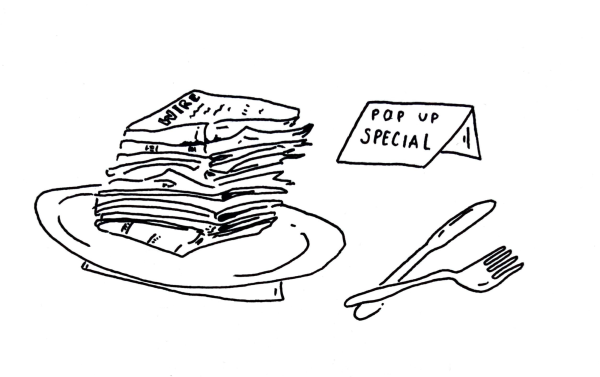Op-Ed: What Are You Going to Do with That Major?
February 8, 2018
The problem is not that we have too few women in STEM; it is that we have too few men in the humanities. Increasing women’s access to STEM is an important and worthy cause, but in our efforts to improve access, we have devalued the humanities. Somehow, for once in our lives, we have forgotten to ask: what about the men?
We’ve known for a while that there is a gender divide in academic disciplines. The national response was to strive to increase the number of women in STEM. In 2011 First Lady Michelle Obama made a speech on the subject: “We need all hands on deck, and that means clearing hurdles for women and girls as they navigate careers in science, technology, engineering and math.” This call to action is warranted, since many women have certainly been dissuaded from studying STEM, but why is no one talking about increasing the number of men studying the humanities? Because, whether we acknowledge it or not, we have concluded that STEM is more important than the humanities.
At Liberal Arts Colleges, majors are often segmented along gender lines. Women make up a disproportionate share of the humanities majors at liberal arts colleges, while men make up the majority in the hard sciences and mathematics. According to the U.S. Department of Education’s most recent statistics, in 2008, engineering ranked third on the list of most popular majors for men in the United States and 83.2 percent of engineering students were male. Men also make up 82.4 percent of computer and information science majors. Meanwhile, men only made up about 33.8 percent of all Liberal Arts and Sciences, Humanities and General Studies majors.
Whitman follows this trend. Considering currently declared majors by percentage and eliminating majors with fewer than five people, those with the highest number of men at Whitman are computer science (90 percent male), physics (73 percent), economics (72 percent) and chemistry (71 percent). Meanwhile, the majors with the lowest number of men include race and ethnic studies (0 percent), environmental science-sociology (7 percent), French (11 percent) and English (21 percent). Nine out of the top 10 woman-dominated majors at Whitman are in the humanities (with the exception being sociology, which is a social science). Meanwhile, only two of the top 10 male-dominated majors at Whitman are in the humanities: philosophy and German.
Paula England and Li Su in the 2010 book, “Gender and Society,” find that women have contributed to the decrease in major segregation through their decisions to enter male-dominated fields of study, while very few men have chosen to enter woman-dominated fields. So, where are the men?
Evelyn Fox Keller offers one explanation in her 1985 book “Reflections on Gender and Science,” where she states that people often associate masculinity with objectivity and femininity with subjectivity. Those fields that are objective and therefore seen as masculine are viewed as more legitimate and worthy, while fields that are subjective and therefore seen as feminine are devalued. The arts and humanities, in other words, are devalued precisely because women study them. One might argue that perhaps men are simply more interested in more objective fields and the fact that society places greater importance on these fields is a mere coincidence. However, England and Li’s findings suggest otherwise. They found that when women do enter previously male-dominated fields, men begin to leave those fields. Men do not want to study fields that women study, not because they are not rigorous or interesting, but because they believe that what interests women is decidedly unimportant.
Currently, women are the majority in American higher education. The U.S. Department of Education states that women make up 56 percent of college students enrolled this fall 2017. As women increase in numbers in higher education, their decisions about disciplinary focus have a greater and greater impact on the colleges and universities they attend. Women’s steady decline in the humanities in favor of social sciences and STEM presents the humanities with the threat of extinction. Women’s turn away from the humanities could very likely be their kiss of death. So, again, I ask: what about the men?









Scott Snedecor • Feb 9, 2018 at 12:41 pm
An interesting look at academia. When I went to Portland State in the early 80’s the Business majors were required to take the Philosophy class Business ethics. It dropped the level of discussion, but at least they had an inkling of the moral consequences of their actions. Getting more men in humanities might dumb it down for a while but it would be worth it to require the stem people to delve a bit into the humanities.